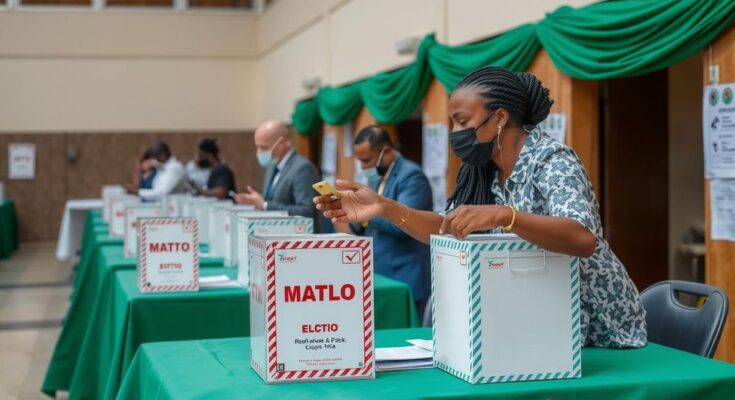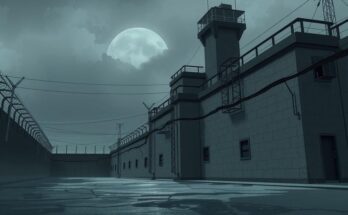Voters in Comoros are selecting representatives for the 33-seat parliament amid allegations of irregularities from the last election. President Azali Assoumani, ruling since 1999, faces opposition regarding his governance. With calls for both participation and boycott, nearly 100 candidates are vying for seats, and results are expected by Friday.
Voters in the Comoros archipelago are participating in parliamentary elections for the 33-seat legislature, following the controversial re-election of President Azali Assoumani last year, which the opposition claims was riddled with irregularities. Despite the allegations, officials from the ruling party vehemently deny any wrongdoing. Polling stations opened on Sunday, with approximately 338,000 registered voters. Nearly 100 candidates have been certified by the Supreme Court to vie for parliamentary positions, creating a competitive electoral landscape.
President Assoumani, who has been in power since a coup in 1999, is accused by his opponents of authoritarian tendencies. There are concerns about his intentions to groom his oldest son, Nour El-Fath, for future leadership after his term ends in 2029. In a significant move, Assoumani granted his son extensive authority in 2024 to oversee all governmental functions. While some opposition parties, including Juwa, led by Ahmed Abdallah Sambi, have urged a boycott of the elections, others have chosen to participate, seeing it as an opportunity to expose the governance flaws in Assoumani’s regime. Hamidou Karihila, representing the opposition Hope of the Comoros party, stated, “The Azali regime is weakened … by participating in these elections we are contributing to further exposing the flaws in its system and accelerating its inevitable fall.”
The last parliamentary elections were held in January 2020, and the outcome of the current elections is anticipated to be announced by Friday. This electoral process is crucial not only for the political landscape of Comoros but also for its citizens, who seek to influence the governance of their country through their votes. The growing dissent among the opposition highlights the prevailing tensions within the political sphere, spurring calls for reform and accountability.
The Comoros, an archipelago located in the Indian Ocean, has been under the leadership of President Azali Assoumani since he assumed power in 1999 through a coup. His political tenure has been marked by allegations of authoritarianism and election irregularities. Assoumani’s consolidation of power has raised concerns about dynastic leadership, particularly with the recent empowerment of his son. The political environment in the Comoros is fraught with challenges, including the opposition’s struggle to make their voice heard amid calls for electoral reform.
In summary, the parliamentary elections in Comoros represent a crucial moment for the archipelago’s political future. With significant opposition participation despite calls for a boycott, the elections may serve to highlight the existing fractures within Assoumani’s regime. The outcome could impact not only the governance of the nation but also the trajectory of Assoumani’s potential succession plans, placing emphasis on the importance of transparent electoral processes in shaping the Comorian democracy.
Original Source: www.thesenior.com.au




